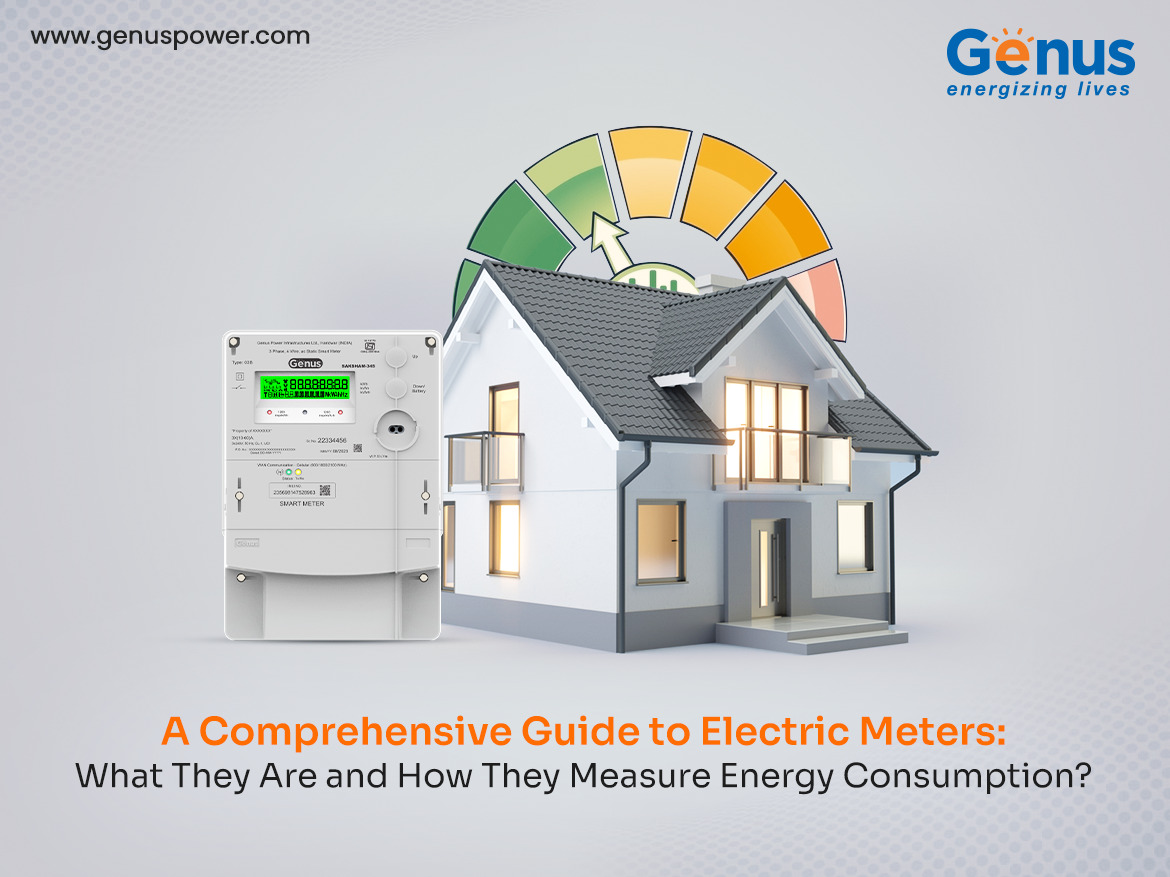
Think of a world where you could manage your energy consumption as easily as checking your emails or messages. Where the power usage is broken down into easily comprehensible data you can understand and control.
And guess what, it’s not just a futuristic idea – with the advent of smart electricity meters, it’s becoming a reality across the world.
And as India continues to become more connected and energy-aware, understanding the nuances of an electrical meter box, and how we measure and consume electricity becomes paramount.
Let’s discuss what an electricity meter is how these meters function and the pivotal role they play in shaping an energy-efficient future for us and our future generations.
Electric meters are a staple device found in most premises, be it a household building, a commercial space, or an industrial space, that ensures we are correctly billed for the electricity we use. These meters generally are of two types, including a single phase meter and a three-phase meter.
In its essence, an electric meter, also known as an electricity or energy meter, is used to measure the amount of electricity consumed by any given building. Information collected by these meters is then used by utility companies to generate monthly electricity bills.
Generally, these meters are installed, maintained, and read by utility providers who own the electricity meters.
Electric meter box plays a crucial role when it comes to protecting meter devices and ensuring the longevity and accuracy of the meters. These boxes are sturdy enclosures, often crafted from durable materials to protect meters from external elements like water, and dust, to prevent tampering and damages.
At its core, an electric meter is used to gauge electricity flow. The traditional analog meter has a rotating disc, which turns as electricity is consumed, recording kilowatt-hours (kWh) on a dial display. Essentially, the faster the disc rotates, the more energy is being consumed. In simple words, the actual monthly energy consumption is achieved by calculating the difference between two readings – the current reading and the previous reading.
Traditional meters require a utility worker to visit the premises every month to take the current meter readings to calculate the bill for each month. Smart meters like those of genus meter devices do not require any utility worker to visit the premises in order to take monthly meter readings.
In the case of digital meters, utilize electronic components to measure energy consumption, recording this data to ultimately display it on a digital screen. A real game changer is however, a smart meter, which not only measures energy consumption data but also communicates this information to the utility provider, allowing real-time monitoring and smarter decision-making.
Analog Meters – These meters use the classic spinning-disc mechanism to provide a visual representation of energy consumption. Getting readings from these types of meters is not only labor intensive but lacks real-time data provision.
Electronic Meters – These meters are intelligent data logger monitoring the electrical conditions and recording it in memory for future analysis.
Smart Meters – Smart meters have two way communication and inbuilt relay which gives empowerment to utility and end consumer to monitor and control their energy consumption.
As the world is shifting towards sustainability and sustainable energy solutions, the role of smart and efficient energy meters becomes even more important.
Affordable single and 3 phase meter box price ranges will also contribute towards the adoption of smart energy monitoring. Smart meters will also play a pivotal role in integrating decentralized energy sources, managing peak load times, and ensuring grid stability.
Furthermore, with advancements in IoT and artificial intelligence, future-forward smart meters will help anticipate consumption patterns, suggest scopes for energy savings, or even communicate with smart devices to save and better optimize energy.
Read More –Ensuring Efficiency In The Energy Industry With Smart Grid Solutions
Conclusion
Electric meters and electrical meter box devices have witnessed significant transformations over the past few decades. From analog meters to digital and smart meters, these advancements reflect the progress in our progress in management of energy.
As consumers, it falls upon us to ensure that we not only consume energy responsibly but also leverage the benefits of the latest technological advancements. The future of energy is indeed smart, efficient, and poised to have a bright future.
For more information on smart metering solutions, visit our website to get specialized solutions for your energy needs.